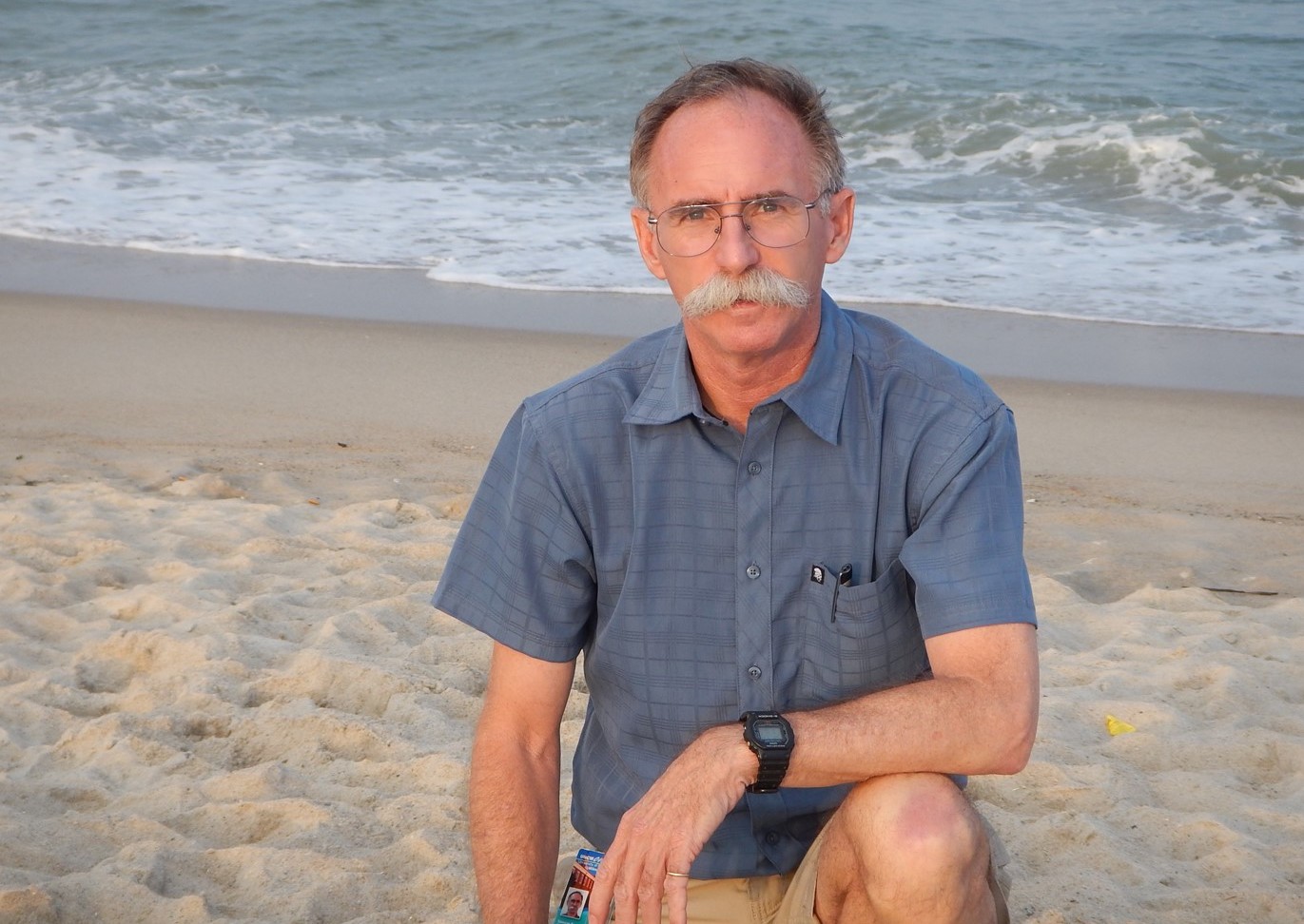Spencer Rogers Retires from NC Sea Grant
For Immediate Release
Contact: Katie Mosher, kmosher@ncsu.edu
Spencer Rogers retired this week after more than 40 years as North Carolina Sea Grant’s coastal erosion and construction specialist, earning high praise from colleagues.

“Through his work, Spencer leaves a rich and valuable science-and-solutions legacy for Sea Grant,” notes Susan White, the program’s executive director.
Frank López, extension director, agrees. “Spencer is the embodiment of extension and has been a trusted resource for many people on the North Carolina coast and around our nation.”
He arrived in the state with a degree in coastal engineering, three years of experience issuing permits for ocean for building setbacks and erosion control structures in Florida, and an interest in North Carolin’s growing Sea Grant program. Then-director B.J. Copeland offered him a job just as the state regulations for the then-new N.C. Coastal Area Management Act, known as CAMA, were taking effect.
“I would be using my coastal engineering, geology training, and experience to provide free advice to property owners, communities and agencies on topics including hurricane resistant building construction, shoreline erosion, green construction and coastal management. I expected naively that I could help answer everyone’s questions and be done in five years. At the time, I really didn’t appreciate the constant turnover of property ownership and the evolving regulations that I’ve dealt with for the rest of my career — the never-ending need for better science,” Rogers notes.
“I’ve always been passionate about conveying good science and consistent science to the people who can put it into use,” adds Rogers, who recently was presented Sea Grant’s national William Q. Wick Award for extension programming. He previously earned a Walter B. Jones Sr. coastal steward honor from NOAA.
Based in Wilmington, Rogers has been recognized for his science and collaborations that have served the state, region and nation, on topics from inlet hazards to coastal construction. “In terms of public awareness, he is likely best known for his rip currents work. He has been a go-to expert for state and national media when offshore conditions increase the dangers in the surf zone,” López adds.
Rogers also is known for his long-time service on the state Science Panel on Coastal Hazards and the N.C. Coastal Resources Advisory Council. He is a co-author of the classic publication The Dune Book, that has been reprinted many times in the past 20 years. In the upcoming spring issue of Coastwatch magazine, he will share insights on many topics including sea-level rise, building codes and inlet hazards.
Although retired, Rogers anticipates that he will stay busy. “I am encouraged that one of the current buzzwords is resilience, but it is the same stuff that I have been working on for 43 years.”
##
NC Sea Grant: Research and Resources for a Healthier Coast
- Categories:


